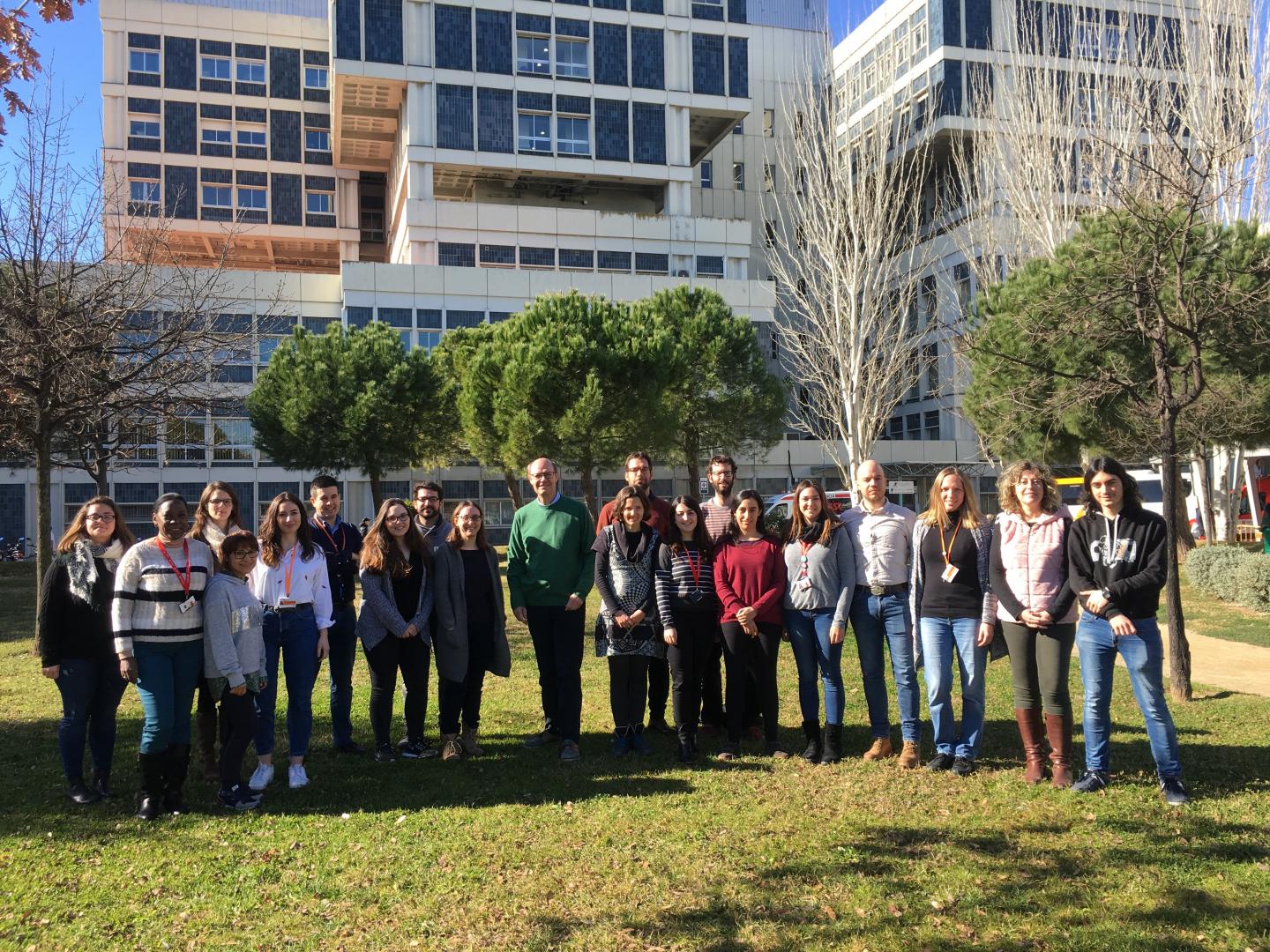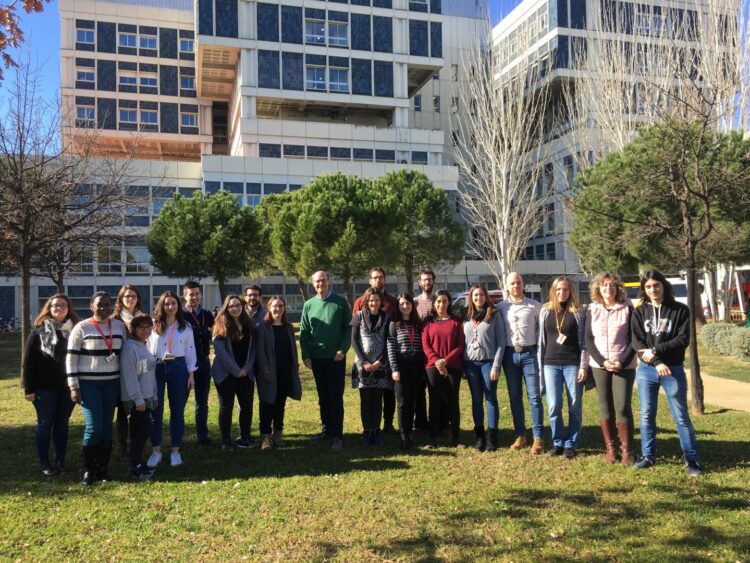In this pilot study, they used colon biopsies samples and feces samples from nine patients to compare two sequencing methods

Credit: Bellvitge Biomedical Research Institute, IDIBELL
The intestinal microbiota, composed by the microorganisms that live in our intestines, can give us information about our health, since its composition may depend on factors such as the diet, the lifestyle or our pathologies. Moreover, knowing what specific bacteria are in our intestines could help to predict diseases like colon cancer. New advances in genome sequencing methods, and bioinformatics tools that allow us to analyze the data, have helped us to identify thousands of new microorganisms present in our intestines through the analysis of their genome.
A team of researchers from the Bellvitge Biomedical Research Institute (IDIBELL) and the Catalan Institute of Oncology (ICO) has carried out a pilot test in the analysis of the intestinal microbiota genome. In this study, they analyzed, by two different sequencing methods, colon biopsies and fecal samples from nine patients. The aim has been to implement sequencing techniques and bioinformatics analysis tools.
It is the first study of a project that aims to be much more extensive. The data obtained in this pilot test will serve as the basis for the design of the analysis method for the Colonbiome project. This wide project aims to find microbiota markers that can be used for the early detection of colon cancer. To do this, colon biopsies and fecal samples will be collected from healthy patients and patients in different stages of colorectal cancer. Then the microbiota’s genome will be sequenced to identify differences between groups.
Data available to everyone
All the data obtained in this pilot study has been entered into the European Nucleotide Archive, a public and collaborative database, where all types of genomic sequences are shared for the benefit of the entire scientific community. In addition, all the results of this first pilot test have been published in the Scientific Data journal, also a public journal, where both the sequences and the bioinformatics analysis methods used are detailed.
This study not only aims to be useful for the future work of the group, but it also aims to be helpful for all research groups that are carrying out similar analyses or trying new bioinformatics tools, who have open access to all the results obtained in this study. In addition, the researchers assure that they will also make public all the details of the subsequent studies, to continue contributing to collaboration and progress in the field.
The two sequencing methods
Two sequencing methods were compared in the study: the 16s and the Shotgun. The first is focused on the sequence of a single gene of the microorganisms, while the second gives us the complete sequence of the entire genome. Although the sequencing of a single gene implicates less sensibility, it can be cheaper. Furthermore, sequencing a gene only present in the microbiota allows us to analyze biopsy samples without the interference of the human genome.
Additionally, the pilot test has shown that both techniques are consistent. Although complete sequencing is more sensitive and can distinguish more species of microorganisms, the results are not contradictory to single-gene sequencing.
###
Media Contact
Carla Serra Peinado
[email protected]
Related Journal Article
http://dx.





